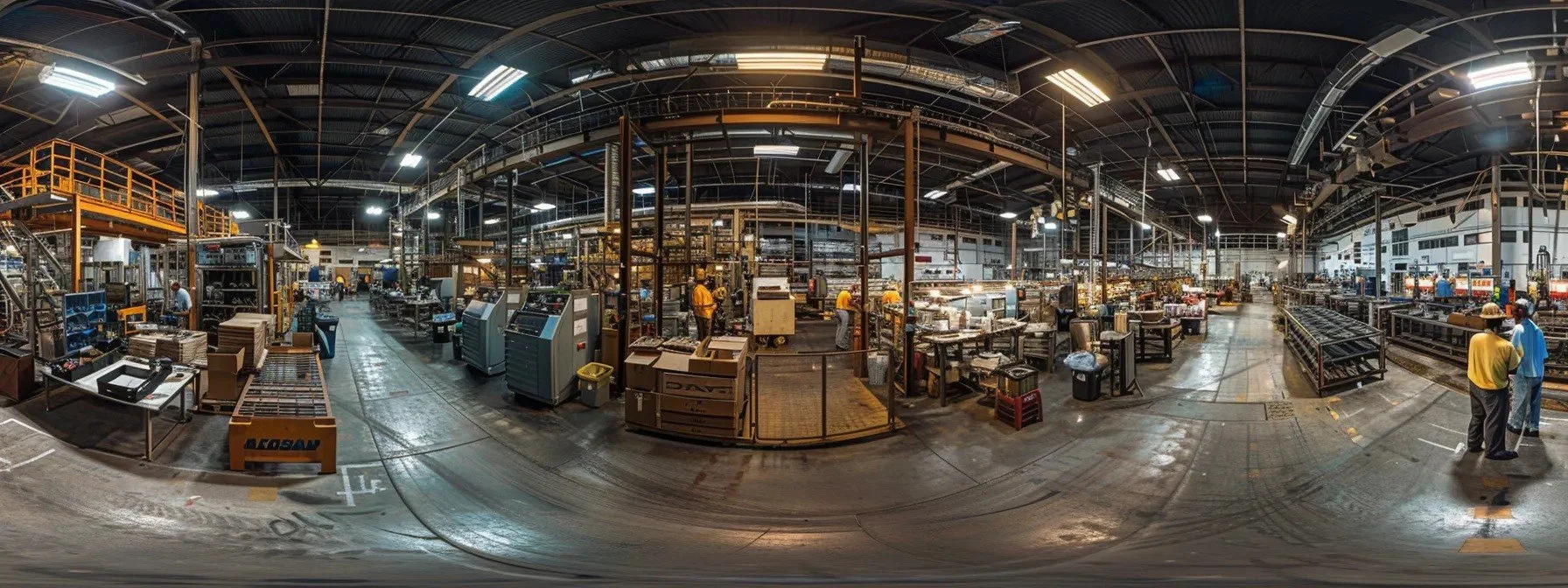In the competitive landscape of modern manufacturing, staying ahead requires not just hard work but smart work too. This is where manufacturing ERP software enters the picture as a game-changer, elevating operational efficiency to new heights. An ERP is a suite of integrated applications that a company can use to collect, store, manage, and interpret data from various business activities. If you're looking to boost productivity, reduce costs, and enhance the overall performance of your manufacturing processes, incorporating an ERP system could be the answer. Below, we explore the transformative impact of these powerful tools on the manufacturing sector.
Understanding Manufacturing ERP Software and Its Role in Business Efficiency
At its core, manufacturing ERP software is designed to break down silos within a manufacturing organization by providing a centralized platform for all operational data. Integrating various functions such as inventory management, order processing, and finance, ERP systems offer a single source of truth for decision-makers. This holistic approach to managing business operations is critical for identifying inefficiencies and streamlining processes.
When it comes to business efficiency, an ERP system is invaluable. It automates repetitive tasks, reduces manual entry errors, and speeds up information flows across the organization. This ensures that data is accurate and accessible, allowing companies to respond quickly to changes in the business environment. By optimizing workflows, manufacturers can focus on growth and innovation, leaving the software to handle day-to-day complexities.
Manufacturers face unique challenges such as complex supply chains, regulatory compliance issues, and the need for product customization. An ERP solution tailored for the manufacturing industry offers specialized tools and functionalities to tackle these issues effectively. Its role in business efficiency is evident as it adapts to ever-changing market demands and enables manufacturers to remain flexible and resilient.
Key Features of Manufacturing ERP Systems That Enhance Productivity
One of the most significant features of a manufacturing ERP system is its inventory management capability. By offering real-time insights into stock levels, manufacturers can avoid the pitfalls of overstocking or stockouts, ensuring optimal inventory management. Solid inventory tracking also supports improved order fulfillment, a cornerstone of customer satisfaction and business success.
Another crucial aspect is the system's supply chain management function. ERP software provides a panoramic view of the supply chain, highlighting any bottlenecks or inefficiencies. With this level of oversight, manufacturers can streamline their supply chain processes, resulting in more timely deliveries and reduced operational costs. This feature needs enhanced collaboration across the supply chain.
Manufacturing ERP systems also incorporate production planning and shop floor control functionalities. These provide manufacturers with the tools to plan, schedule, and execute production runs efficiently. Better production control leads to fewer errors, less waste, and shorter cycle times—all of which translate to higher productivity and profitability.
The Impact of Real-Time Data Access on Manufacturing Decision-Making
The availability of real-time data is a transformative feature of manufacturing ERP systems. It empowers decision-makers with immediate access to critical information, allowing for more agile and informed decisions. This timely data visibility is essential for adapting to marketplace changes and customer demands on the fly, without the delays associated with manual data compilation.
Real-time data also plays a pivotal role in risk management within manufacturing operations. By providing up-to-date information on all aspects of the production process, ERPs enable managers to identify potential issues quickly and address them before they escalate. This proactive approach to problem-solving is crucial for maintaining continuous production flow.
In addition, when all the relevant data is available at a glance, it facilitates a more collaborative environment. Different departments can align their strategies and work together towards common goals, knowing that they're basing decisions on the same, accurate data set.
Integrating Supply Chain Management With Manufacturing ERP for Greater Control
The integration of supply chain management within a manufacturing ERP system ensures greater control over this complex network. Complete visibility across the supply chain means manufacturers can efficiently manage everything from raw material procurement to distribution. This comprehensive control mitigates the risk of disruptions, which can have significant consequences on production and profitability.
ERP systems enable seamless coordination among suppliers, manufacturers, and distributors. These tools facilitate improved communication and data exchange, leading to more effective collaboration and the ability to respond quickly to supply chain challenges. As such, the ERP becomes an indispensable asset in maintaining a robust and resilient supply chain.
Overall, the value of manufacturing ERP software can't be overstated. It serves as the digital backbone of today’s manufacturing operations, aligning every aspect of business to drive efficiency, support strategic decisions, and promote seamless collaboration within the supply chain. For manufacturers looking to prosper in a dynamic economic environment, adopting an ERP system is not just an option—it's crucial for future success.

























































































